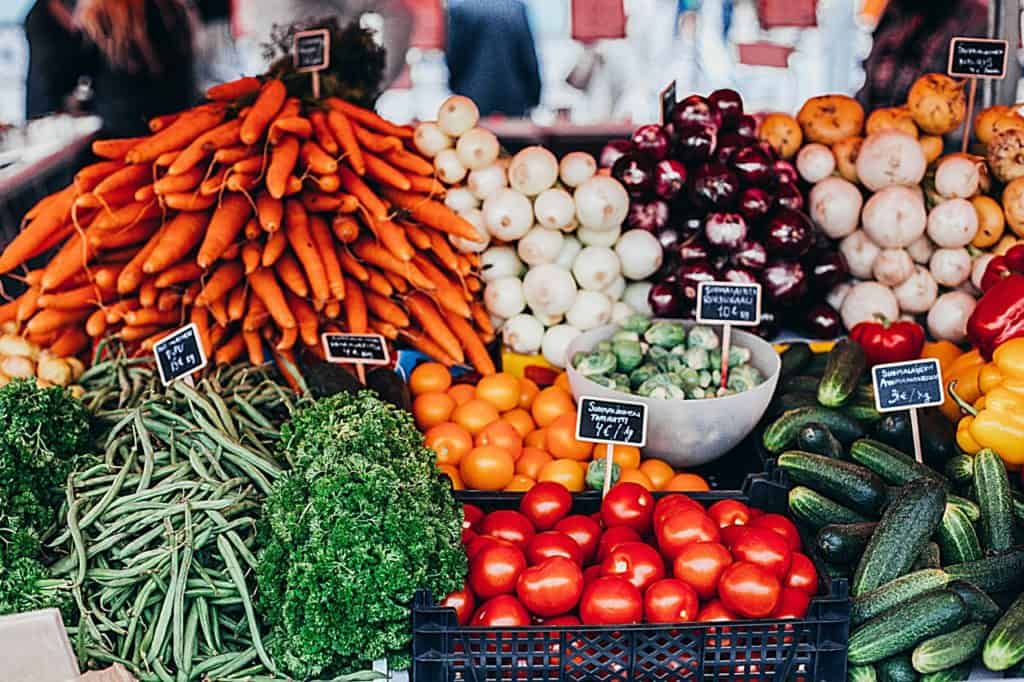Given the amount of coverage that plant-based diets are getting in the media these days, one would think that scads of people are flipping their burgers into the trash and tossing salads. However, according to a 2018 Gallup poll, only about 5-6% of people claim to be vegetarians—a level that’s remained the same since 1999. Yet, last year Americans spent 3.1 billion on plant-based foods. And have you seen how quickly the plant-based dairy alternatives category is expanding? What gives?

Well, it could be that becoming a full-on vegetarian isn’t what most folks are interested in (or they don’t define their eating style using that term). Plant-based eating doesn’t mean you have to be a vegetarian or call yourself a vegetarian. It also doesn’t mean you need to eat salad at every meal or that you need to purchase “alternative” veggie-based meat-like foods. Plant-based eating is a flexible way of eating that can be tailored to your individual preferences and lifestyle. It celebrates and emphasizes plant-based foods, but it isn’t limited to them. We’ve written about plant-based eating before, but haven’t really covered the basic concepts to pay attention to when starting to eat in a more plant-forward style. Here are my top 3 tips to focus on…
1) Embrace plant variety
Following a plant-based diet doesn’t mean you’ll just be eating veggies (although lots of veggies should certainly be part of it). Choosing foods from all of the plant-based food groups ensures enough variety to keep you interested and also helps you get the widest variety of nutrients. Ingredients from the following groups will give you plenty of variety and lots of options for creative recipes.
- Whole grains
- Legumes
- Vegetables
- Tubers
- Fruit
2) Focus on food quality
Technically, one can follow a vegetarian diet (or a plant-based diet) and not eat many plant-like foods at all. It reminds me of how some people can be vegetarians and rarely eat a vegetable. Think about a diet of pasta, bread, macaroni and cheese, juices, sweets, and snack foods like pretzels, chips, crackers, cookies, etc. It’s not a wise way to go, health-wise. First of all, it doesn’t reflect foods from all the groups discussed above and ends up being very high in carbs and low in nutrients. Secondly, it relies heavily on highly processed foods. Let’s be real here for a moment: if you want to do a plant-based diet approach, it really is better if you like to eat plants. Doing so means focusing less on hyper-processed foods and more on whole foods such as fruits, veggies, legumes, whole grains, nuts, and seeds. When you do that, you’ll be surprised at how filling your food will be (hello, fiber!), and that’s a good thing because it leaves you less hungry for “extras” that add calories but little else.
3) Don’t forget about fat
If you’re not eating a lot of animal protein, there is a chance that you may not get enough fat in your diet. There’s no reason, however, why a plant-heavy diet can’t include good sources of fat—it all depends on your food choices. Fat is important. Plant-based fats tend to contain unsaturated fats, the kind that isn’t associated with increased risk of heart disease. And, while monounsaturated fats (MUFA)—a type of unsaturated fat—can come both from plants and animals; research indicates that people who had higher MUFA intake from plants had a lower total mortality risk compared with those who got their MUFAs from animal sources. Plant sources of MUFAs include avocado, nuts, nut butters, olive oil, and other vegetable oils. While these results were from an observational study and therefore can only show an association, the results do add to the growing body of evidence showing that a plant-based diet is a healthy choice.
Oh, and one final suggestion: start slowly. Doing too much too soon can backfire sometimes. There’s probably no reason you’d need to do a total diet overhaul quickly. Instead, increase the number of plant-based meals you eat, and over time you’ll find that more and more plant-based diet days are working into your diet.